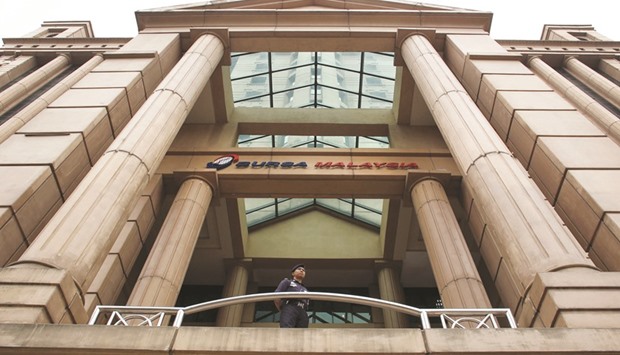The Indonesia Stock Exchange (IDX) and the Bursa Malaysia (KLSE) entered a collaboration to develop a World Shariah Stock Market Centre by signing a memorandum of understanding on August 2 at the 12th World Islamic Economic Forum held in Jakarta. The exchanges said they want to “broaden the usage and availability of Islamic liquidity and Shariah-compliant investment products worldwide,” as well as “establish a global benchmark for Islamic capital markets.”
“It makes sense that both nations combine their strengths,” IDX president director Tito Sulistio said at a press conference announcing the collaboration. “Malaysia has the biggest market share globally in Islamic finance, and Indonesia has the biggest Muslim population in the world. Both of us agreed to develop Shariah-compliant capital market products, which will become benchmarks for future such products in the world,” he added.
At present, a global centre for Islamic capital market products does not exist. The two exchanges will now conduct studies and develop the necessary infrastructure.
“After six months, we should see the launch of Shariah-compliant bonds and financial securities products, as well as other Shariah-compliant financial products. The planned World Shariah Stock Market Centre will also serve as a research and development hub to develop a market structure for the global Shariah-compliant stock market,” Sulistio said.
He noted that the agreement will also see both exchanges stage events and promotions, provide human resources improvement and product development programmes.
Tajuddin Atan, CEO of Bursa Malaysia, added that he expects that the memorandum “will formalise a collaboration to enrich offerings in our capital markets and broaden the use and availability of Islamic liquidity and products.”
One option for Malaysia to provide more Islamic finance products is the Islamic wealth management industry. The country has identified Islamic wealth management as a new growth area, Prime Minister Najib Razak said in a keynote address at the World Islamic Economic Forum. He pointed out that Malaysia’s $420bn Islamic capital market had more than tripled in volume over the past decade and was increasingly becoming a global hub for Shariah-compliant businesses and transactions.
The fact that the global Islamic economy is thriving and more and more Muslims become active as investors and traders indeed makes the development of an Islamic wealth management industry seem natural, particularly in the light of substantial liquidity outflow from traditional wealth management market such as Switzerland or certain offshore jurisdictions. It also starts to attract non-Muslim investors who discover the ethical component and stable structures of Islamic finance.
For example, Australian fund manager Crescent Wealth announced at the forum that it launched an Islamic property fund in Malaysia aiming to tap the largest Islamic finance market in the world. The launch comes as Islamic finance enters non-traditional markets such as Australia, where the government considers introducing tax incentives for asset-backed financing arrangements.
In another move, Indonesia and Malaysia have agreed to give their banks greater access to each other’s markets, which would greatly benefit the Islamic banking sectors of both countries since particularly the access to the Indonesian banking sector by foreign institutions used to be quite restricted.
“The agreement is aimed at reducing an imbalance in the market access and banking activities of both countries through the presence of banks that fulfil certain conditions in each jurisdiction, based on the principle of reciprocity,” a joint statement of Indonesia’s financial regulator and Malaysia’s central bank said.
Under the deal, each country will allow the formation of three banking groups which could operate under the same regulations as local lenders. In the case of Malaysian banks, this will include banking groups that are already operating in Indonesia, namely Maybank and CIMB, while Indonesia’s largest lender by assets Bank Mandiri, plans to set up retail banking and remittance services in Malaysia, targeting Malaysia’s large Indonesian overseas workers community.

Bursa Malaysia signboard stands at its headquarters in Kuala Lumpur. Right: People walk past a statue of a bull as they enter the Indonesia Stock Exchange (IDX) in Jakarta. The bourses have entered a collaboration to develop a World Shariah Stock Market Centre.


